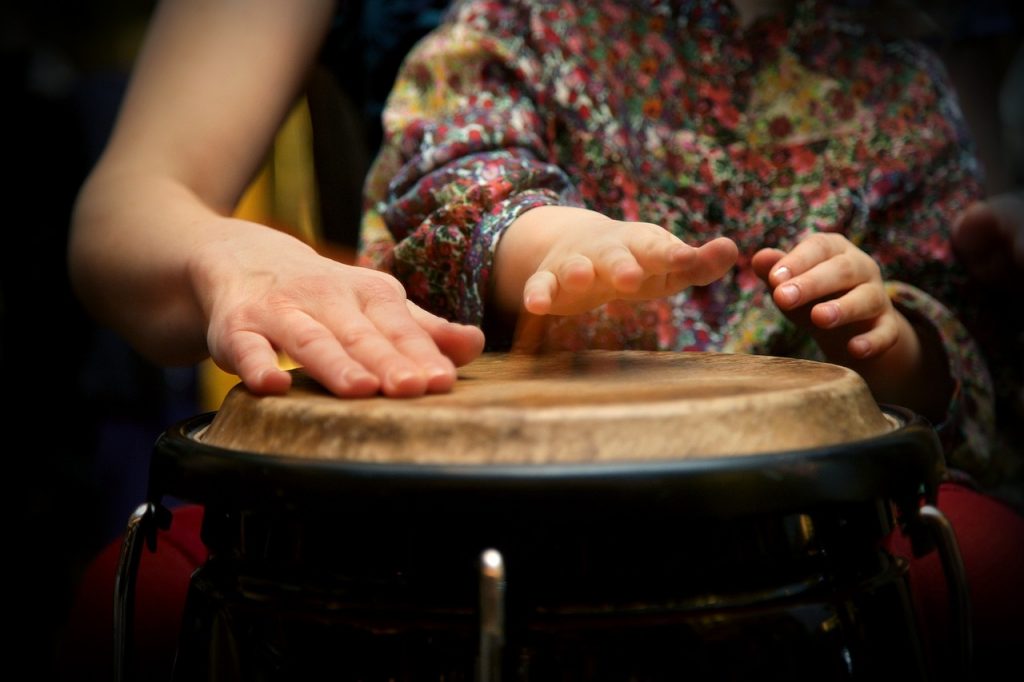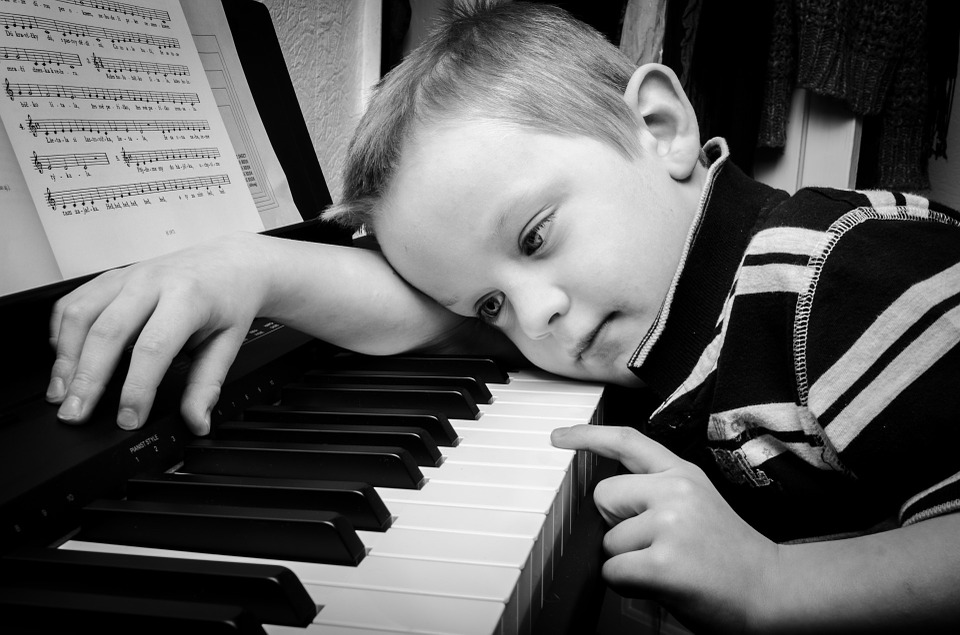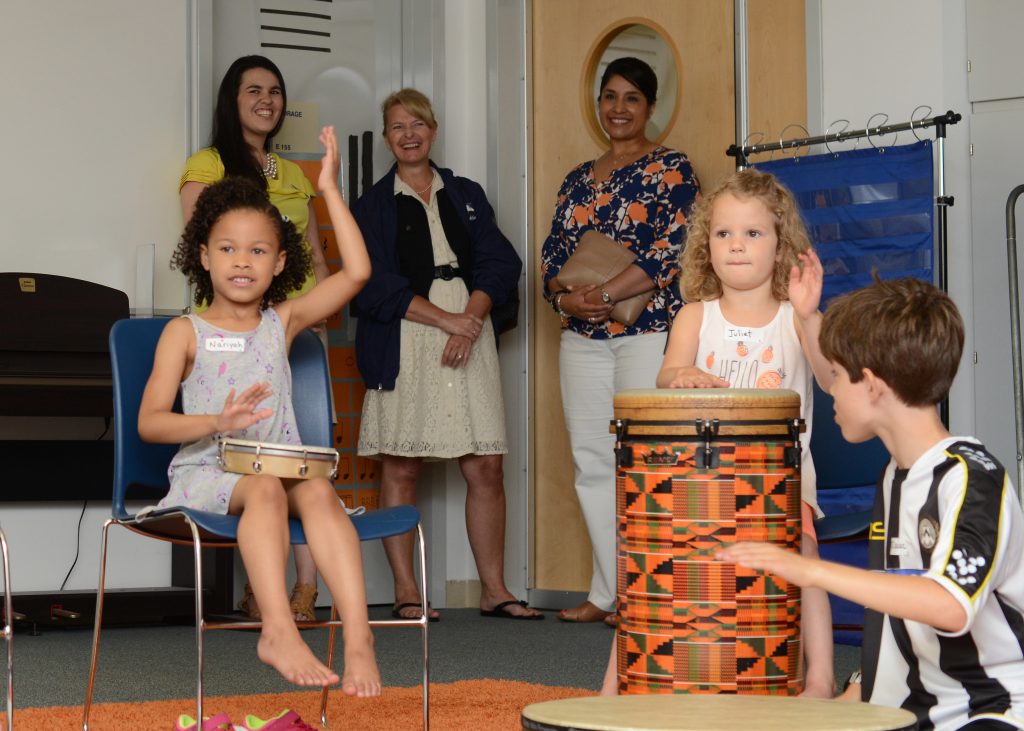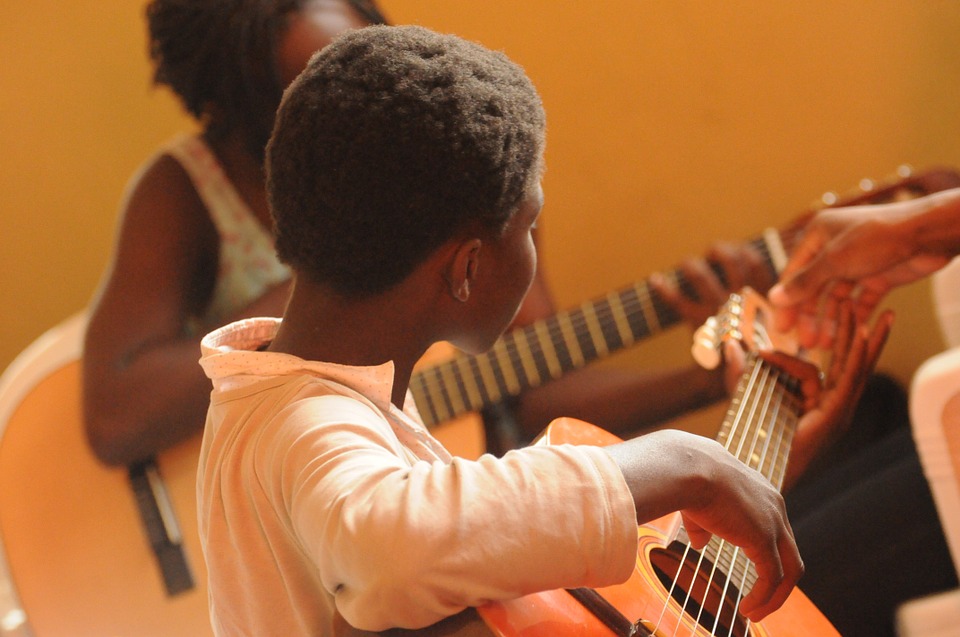Music is an important part of any person’s life. And it’s no wonder so many parents are trying to get their children to be open to the more productive and qualitative aspects of music. This being said, know that more and more people are interested in getting their little ones to learn to play an instrument starting at a very early age.
If you are among the people who would have loved to master an instrument (not necessarily to become a musician, but to play music by yourself or with others), then you too must have heard the phrase “it’s a little too late for that instrument at this age.” And while some of you did not get discouraged and took classes as adults, they know they struggled more than a child would. Therefore, why not get a head start with your own child? Here are some of the other benefits.
9 REASONS WHY YOUR CHILD SHOULD LEARN TO PLAY AN INSTRUMENT
1. An instrument is great fun and an amazing discovery for any child

Adult and child beating the drum
Know how when they are very small, children are attracted by the loudest of toys? And not only that but they will keep banging at them relentlessly, trying to make even more noise? Then imagine how thrilled he will be when he will be allowed to make as much “noise” as possible on those new toys. Sure, in time you expect them to make a controlled noise, and they will, too. But until then you can simply enjoy their amusement.
2. An instrument encourages great coordination skills
Playing an instrument means being well coordinated. It also means having a great posture, knowing how to stand, and how to move your hands and feet at the same time. You will never see a child who knows how to play an instrument doing random or sloppy movements because his whole body is being formed at the same time.
3. It is a skill acquired for life
Maybe he will not become a virtuoso or perform on the biggest stages of the world, but this is one of the skills he will have for the rest of his life, regardless of what he chooses to do with it. There is also the issue of forgetting some of the things he learnt if he does not practice, but the basics will always be there, which is more than we can say about people who have never had one single lesson to begin with.
4. It provides them with a great emotional outlet

Child playing the piano
Most children will not know how to express themselves, but they will try by whatever means they have at hand. Some children turn to acting, some sing, and some write. And there are always those who lack any type of creative and emotionally expressive outlet of any kind. On the other hand, the child who knows how to play an instrument will always be able to tap into his feelings and produce amazing songs, or put his strongest emotions into a particular performance.
5. Math will be much easier than before
Wondering whether to get a math tutor or a music teacher? Try the latter because it comes with a two-in-one guarantee: your child will learn how to play an instrument AND get better at math. How come? Music is all about mathematics. Understanding divisions, repetitions, and noticing patterns is what one does in music, and something that is useful in solving math problems as well. You might notice an increase in the child’s capacity to focus on math problems because they will no longer feel out of reach. Not even fractions will seem difficult any more.
6. It makes them more sociable

Children having fun playing instruments
Although they learn how to make music by themselves, playing along with other people is always more fun. Therefore, if you opt for group lessons, your child will have a group of children to interact with outside the school setting.
Apart from that, a person who knows how to play an instrument will always be the center of attention and others will always ask them to play something. So, you have a guarantee that your child will have that one thing others don’t in a group.
7. It teaches them to persevere
You cannot learn how to play an instrument without perseverance. Practice alone takes up a big part of the day and, with some instruments, progress is difficult. Take the violin, for example. This instrument has a very steep learning curve and some of the children might want to abandon as they do not see the results of their hard work early on. By comparison, other instruments are easier to master and children can play easy songs to their full satisfaction.
8. It teaches them discipline
Discipline teaches you to wait your turn quietly, then perform your best. This cannot be done by a child who is restless, who does not have the patience to listen to others, who wants to speed through the class and only make a racket by himself. Energetic children such as this might be better off studying specific instruments, such as drums. Otherwise, to play an orchestra instrument, for example, you need to know how to wait your turn and listen very well to other people playing. There are cues they need to take from their fellow musicians. And these cannot be picked up without offering them the courtesy they need.
9. It helps develop cognitive functions and memory

Little boy playing guitar
As established before, music and math are intertwined and their mastery depends on the development of specific brain functions. Constant exercises will improve brain function and will keep at bay mental problems and memory loss in older years. A well-trained mind is a well-oiled mind and one that will not rust too soon. He will learn to make connections and detect patterns easily. These are skills he can use throughout his entire life.
Undoubtedly, there are benefits to having your child learn to play an instrument. But one thing you need to keep in mind more than anything else. Does he enjoy it?












